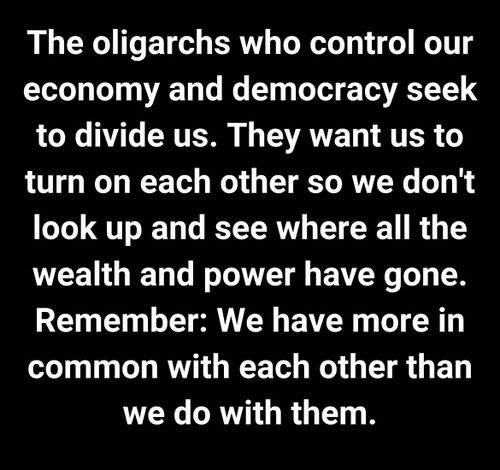Why Ignoring Progressive Voices Cost the Democrats the 2024 Election
The 2024 presidential election has come and gone, leaving many Americans grappling with the outcome: a second term for Donald Trump. While numerous factors contributed to this result, one glaring issue stands out—the Democratic Party’s failure to listen to the needs of the working class. Instead of embracing progressive policies that resonate with everyday Americans, the Democrats chose to court centrist Republicans, offering little in the way of bold proposals. This strategic miscalculation not only alienated their base but also underscored the urgent need for a progressive populist leader who can unite the country, break the corporate lobby stranglehold, and actually do something good for real Americans.

In an effort to broaden their appeal, the Democratic Party shifted its focus toward moderate Republicans disillusioned with Trump’s first term. This approach led to a campaign centered on preserving the status quo rather than challenging systemic issues. By doing so, the Democrats overlooked the concerns of the working class—a constituency grappling with wage stagnation, rising healthcare costs, job insecurity, and an ever-broadening wealth gap.
For instance, instead of advocating for a $15 minimum wage to bring us in-line with 2005, the party settled for ambiguous language about “fair wages.” On healthcare, rather than pushing for Medicare for All, they proposed incremental adjustments to the Affordable Care Act. These watered-down policies failed to inspire voters who were looking for substantive change. The absence of strong progressive stances made it difficult for the Democrats to differentiate themselves from their Republican counterparts, leading many voters to question what the party truly stood for.
The lack of progressive policy proposals had a demobilizing effect on key segments of the Democratic base, including young voters, people of color, and working-class individuals who are most affected by economic inequality. Many felt that their voices were not being heard, leading to decreased enthusiasm and lower voter turnout in critical swing states.
Progressive leaders within the party, like Alexandria Ocasio-Cortez and others, had advocated for bold initiatives to address pressing issues such as climate change, student debt, and criminal justice reform. However, these ideas were largely sidelined during the campaign. This disconnect created a sense of frustration among voters who believe that the party is out of touch with their needs.
The election’s outcome underscores the necessity of embracing a progressive populist leader—someone who can articulate a clear vision for addressing the systemic challenges that affect all Americans. Such a candidate should embody the principles of progressive populism: advocating for economic justice, healthcare for all, environmental sustainability, and social equity.
Far from being radical, the policies proposed by progressive populists have the potential to benefit even those on the far right. Economic initiatives like raising the minimum wage and investing in infrastructure can create jobs and stimulate growth in both urban and rural areas. Universal healthcare would ensure that no one faces financial ruin due to medical expenses—a concern that transcends political affiliations.
Addressing the opioid crisis through rehabilitation and support services can resonate with communities hit hard by addiction, many of which lean conservative. Similarly, advocating for privacy rights and opposing mass surveillance aligns with the values of individuals concerned about government overreach.

Both progressive and conservative working-class voters share common grievances: feeling ignored by politicians, struggling with economic insecurity, and desiring a better future for their families. A progressive populist candidate who listens to these concerns can build a coalition that bridges the partisan divide. By focusing on policies that address the root causes of economic and social issues, such a leader can appeal to a broad spectrum of voters. This approach moves beyond identity politics and zeroes in on the universal desire for dignity, opportunity, and fairness.
To regain the trust of the electorate, the Democratic Party must commit to bold, progressive policies that address the immediate needs of the people. This means taking clear stances on issues like:
- Economic Inequality: Implementing fair tax policies, supporting unionization efforts, and investing in job creation programs. Maybe even something like a universal basic income.
- Healthcare Access: Advocating for a universal healthcare system that eliminates financial barriers to medical care.
- Education: Making higher education affordable and accessible, and investing in vocational training programs.
- Climate Action: Pursuing aggressive measures to combat climate change, such as transitioning to renewable energy sources and creating green jobs.
- Criminal Justice Reform: Addressing systemic racism, ending mass incarceration, and reforming policing practices.
By championing these initiatives, the party can demonstrate a genuine commitment to improving the lives of all Americans. Meeting people’s needs will not only mitigate crime, it will actually improve the health and happiness of the citizenry. Why wouldn’t we want to do this?
Change doesn’t only happen at the ballot box; it occurs through daily actions and local engagement. The working class can harness their collective power by supporting local businesses, participating in community organizations, and advocating for policies that reflect their values. Establishing local support networks helps protect the most vulnerable and fosters a sense of solidarity. When communities unite around common goals, they can effectively push back against corporate interests that prioritize profits over people.
The 2024 election serves as a critical lesson for the Democratic Party and the nation as a whole. Ignoring the needs of the working class and sidelining progressive policies is not a path to victory—it alienates voters and cedes ground to opponents who, despite their numerous and obvious flaws, at least appear to address the concerns of everyday people.
To move forward, we should embrace a progressive populist agenda that offers practical solutions to real problems. This doesn’t mean pandering to extremes but rather recognizing that policies aimed at promoting economic justice, healthcare access, and social equity benefit everyone, regardless of political affiliation. By listening to the voices of the working class and championing bold initiatives, we can build a movement that ignores partisan distractions and truly unites people based on real-life. It’s time for leaders who are willing to take a stand for the many rather than the few, and for a political strategy that prioritizes genuine progress over cautious centrism.
In doing so, we not only address the immediate challenges facing our nation but also lay the foundation for a more inclusive and equitable future. The opportunity is there—the question is whether we have the courage to seize it.
